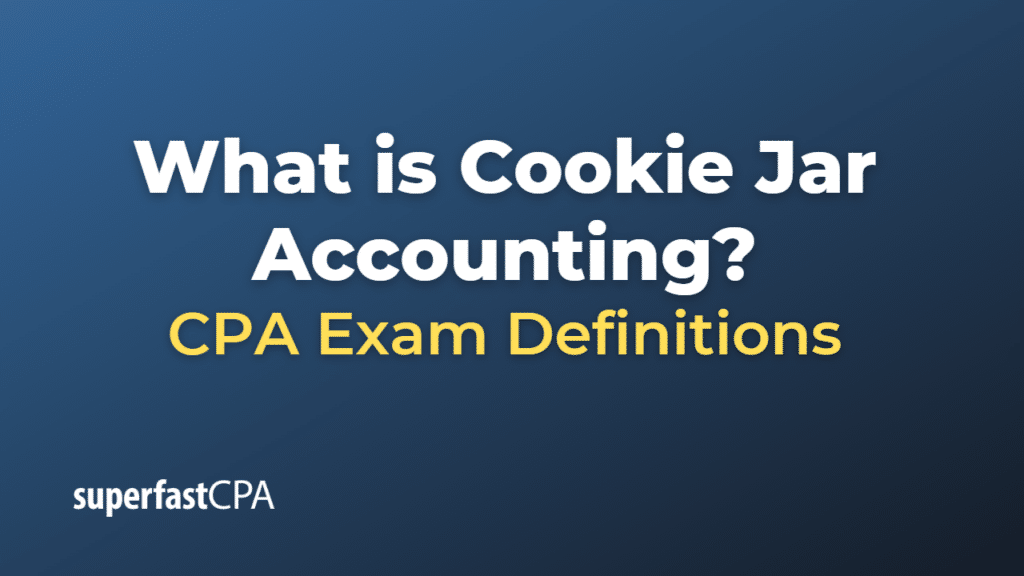Cookie Jar Accounting
Cookie jar accounting is an earnings management technique used by companies to manipulate their financial results by creating artificial reserves in periods of strong financial performance and using these reserves to improve their financial results in periods of weaker performance. The term “cookie jar” is used metaphorically to describe the practice of setting aside excess earnings in a “jar” (reserve account) and dipping into it when needed to smooth out fluctuations in earnings.
The main objective of cookie jar accounting is to create an illusion of steady earnings growth and stability, which can make a company appear more attractive to investors and analysts. This practice can also be used to meet earnings targets or to manipulate executive compensation based on financial performance.
Cookie jar accounting involves the manipulation of certain accounting estimates and accruals, such as:
- Revenue recognition: A company may defer the recognition of revenue in a good year by increasing its allowances for sales returns or discounts and then reversing these allowances in a weaker year to boost revenue.
- Expense recognition: A company may overstate its expenses or create excessive reserves for future expenses (e.g., restructuring costs, warranty expenses, or bad debt provisions) in a good year, only to release these reserves in a weaker year to reduce expenses and improve earnings.
- Inventory valuation: A company may manipulate its inventory valuation methods (e.g., by changing its assumptions for the cost flow or obsolescence) to create inventory write-downs in a good year and then reverse these write-downs in a weaker year to boost gross profit margins.
Cookie jar accounting is considered an unethical and fraudulent practice, as it misrepresents a company’s true financial performance and misleads investors, analysts, and other stakeholders. If discovered, cookie jar accounting can lead to regulatory actions, financial restatements, loss of credibility, and legal consequences for the company and its management.
Example of Cookie Jar Accounting
Let’s consider a hypothetical example to illustrate cookie jar accounting:
Company ABC is a manufacturer of electronic devices and has experienced a strong financial year with higher-than-expected sales and profits. The company’s management wants to create the appearance of steady earnings growth over time, so they decide to engage in cookie jar accounting.
To accomplish this, Company ABC overstates its warranty expense reserve during the strong financial year. The company estimates that the cost of servicing warranties on its products will be higher than what is reasonably expected. This results in an increase in warranty expenses and a corresponding decrease in net income for the current year.
Now, let’s assume that the next year, Company ABC faces weaker sales and lower profits. To improve its financial results, management decides to release a portion of the previously created warranty reserve. By doing so, the company reduces its warranty expenses for the year, which, in turn, boosts net income and creates an appearance of stable earnings growth despite the weaker sales.
In this example, Company ABC used cookie jar accounting to manipulate its financial results by creating an artificial reserve in a good year and then dipping into it in a weaker year to smooth out fluctuations in earnings. This practice misleads investors, analysts, and other stakeholders about the company’s true financial performance and is considered unethical and potentially fraudulent.
While this example is fictional, there have been real-life cases of cookie jar accounting, such as the accounting scandal involving Computer Associates in the early 2000s, which resulted in financial restatements, regulatory actions, and criminal charges against some of the company’s executives.













